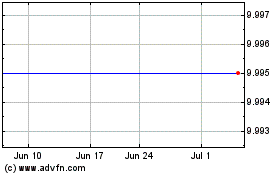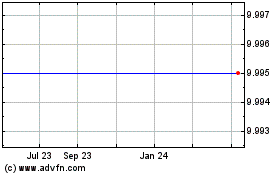University of Phoenix Announces New Cyberethics Continuing Education Courses
April 12 2016 - 7:00AM
Business Wire
Courses designed to equip K-12 educators with a
framework to navigate ethical decision-making in today’s digital
education landscape
Social media is a main form of communication and is reshaping
the world as we know it, including today’s K-12 classrooms.
Educators have the opportunity to use social media in the classroom
to enhance student experiences and expand the walls of today’s
classrooms. However, these opportunities also present challenges in
the form of vulnerabilities and new scenarios that can be difficult
for today’s teachers to navigate. In fact, four-in-five (82
percent) educators worry about conflicts that can occur from using
social media with students and parents.*
Recognizing the need for additional tools and training to
navigate the dynamics of today’s digital education landscape,
University of Phoenix® College of Education collaborated with
Frederick S. Lane, a leader in the field of cyberethics, to
introduce Continuing Teacher Education courses to help inform
educators about how to make ethical decisions in the digital age
where the role of technology can create and heighten ethical
dilemmas K-12 teachers face. Lane is an author and
nationally-recognized professional speaker on the legal and
cultural implications of emerging technology and its effects in
contemporary culture.
Courses include ‘Cyberethics for Educators,’ in which
participants study the risk factors for digital and ethical
misconduct both inside and outside the classroom, and ‘K-12
Cybertraps: Strategies for Teaching Digital Citizenship,’ which
offers participants an understanding of how students are using
technology today and the legal and professional risks that can
arise.
“Teachers have always navigated ethical dilemmas in the
classroom, but there is a whole new playing field with new rules,”
said Pamela Roggeman, Ed.D., academic dean for University of
Phoenix College of Education. “These courses build on the work of
the Model Code of Ethics for Educators and will provide educators
with the tools and resources needed to confront the challenges
presented by technology to not only make their own smart ethical
decisions, but prepare their students to do the same.”
The courses build off of the University’s work to support the
development of the Model Code of Ethics for Educators (MCEE). The
MCEE was created by a task force of practicing educators
representing a number of professional educational organizations
that was convened by the National Association of State Directors of
Teacher Education and Certification (NASDTEC). University of
Phoenix, Educational Testing Service (ETS), and the National
Network of State Teachers of the Year (NNSTOY) provided financial
support for the project.
These new course offerings are part of a larger Continuing
Teacher Education framework designed to provide engaging and
relevant academic content that helps teachers navigate current
classroom dynamics.
“The invention and evolution of digital technology provides
today’s educators with unparalleled opportunities for student
learning and engagement,” said Frederick Lane. “However, that very
same technology poses significant personal and professional risks
for educators who are not thoughtful and careful about how they use
it. These courses are designed to provide every educator with the
information he or she needs to understand those risks, and a
framework for making ethical decisions about how technology should
be used.”
For more information about Continuing Teacher Education (CTE)
courses offered by University of Phoenix® College of Education,
visit phoenix.edu.
*According to a 2015 University of Phoenix College of Education
survey. The survey was conducted online within the United States by
Harris Poll on behalf of University of Phoenix between April 14 and
27, 2015. Respondents included 1,002 U.S. residents employed
full-time as teachers in grades K-12 who have at least an
undergraduate degree. For complete survey methodology, including
weighting variables, please contact Tanya Burden at
Tanya.burden@apollo.edu.
About University of Phoenix® College of Education
University of Phoenix College of Education has been educating
teachers and school administrators for more than 30 years. The
College of Education provides bachelor’s and master’s degree
programs for individuals who want to become teachers or current
educators and administrators seeking advanced degrees to strengthen
their professional knowledge. With education programs available
throughout most of the U.S., the College of Education has a
distinct grasp of the national education picture and priorities for
teacher preparation. Faculty members on average bring more than 17
years of professional experience to the classroom. For more
information, visit phoenix.edu/education.
About University of Phoenix
University of Phoenix is constantly innovating to help working
adults move efficiently from education to careers in a rapidly
changing world. Flexible schedules, relevant and engaging courses,
and interactive learning can help students more effectively pursue
career and personal aspirations while balancing their busy lives.
As a subsidiary of Apollo Education Group, Inc. (Nasdaq: APOL),
University of Phoenix serves a diverse student population, offering
associate, bachelor’s, master’s and doctoral degree programs from
campuses and learning centers across the U.S. as well as online
throughout the world. For more information, visit phoenix.edu.
View source
version on businesswire.com: http://www.businesswire.com/news/home/20160412005364/en/
University of PhoenixAmanda Barchilon,
602-557-8641Amanda.Barchilon@apollo.edu
Apollo Education Group, Inc. (NASDAQ:APOL)
Historical Stock Chart
From Mar 2024 to Apr 2024

Apollo Education Group, Inc. (NASDAQ:APOL)
Historical Stock Chart
From Apr 2023 to Apr 2024
